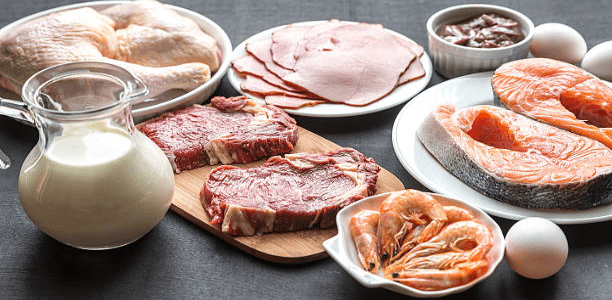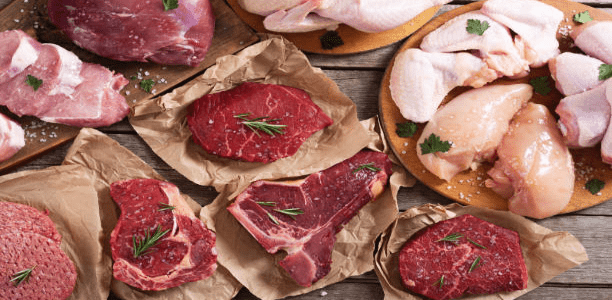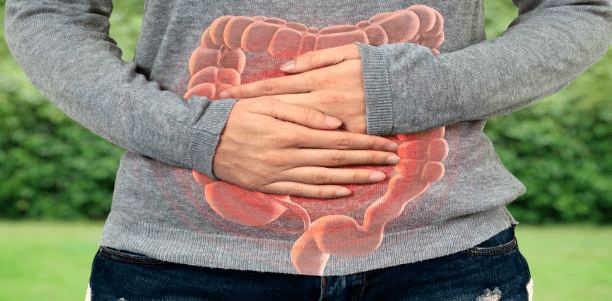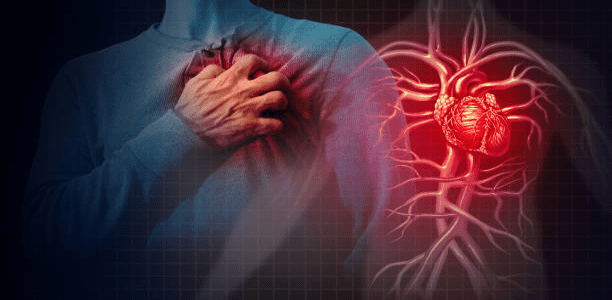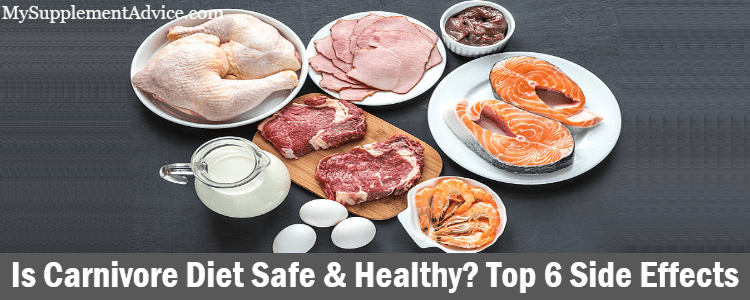
Is Carnivore Diet safe & healthy for weight loss?
What are its side effects? And despite them, is this diet worth trying?
Let's talk about some of its most important details:
- side reactions
- symptoms and risks
- potential nutrient deficiencies
So if you're having second thoughts about this diet, this article is the perfect guide.
It will walk you through all the possible consequences of this diet.
Note: This article includes references and studies related to Carnivore Diet and its effects.
Is Carnivore Diet Safe & Healthy? (In A Nutshell)
Basically – Carnivore Det is a restrictive dietary regimen.
To be specific, it requires you to focus on eating animal-based products ONLY.
Now, a lot of people claim that they experienced some positive results after following it.
But it's not always the case, since this dietary approach is not sustainable.
In most cases, it does more harm than good.
So my honest advice is not to try it alone (and randomly).
If you really want to give it a go, always seek professional advice beforehand.
Even so, here are some of the possible side effects you might experience:
- Gut Problems
- Nutrient Deficiencies
- Cancer
- Heart Diseases
- Organ Damage
- Mental Health Issues
Again – you should avoid plant-based foods if you follow this diet.
So this regimen is pretty much the opposite of what a balanced diet means…
This means that you're more prone to nutrient deficiencies.
This negative effect alone can lead to different health problems.
Some of them can possibly cause long-term complications.
So this type of dietary pattern is not free from side effects.
On the contrary, I would say that it's a lot riskier than others.
Is Carnivore Diet Healthy?
Firstly – let's talk about the basics you need to know about the Carnivore Diet:
- emphasizes the consumption of animal products [1]
- plant-based foods are eliminated (especially those rich in carbohydrates) [2]
- you should increase your fat intake to compensate for the lack of carbs
- choosing whole foods (not processed ones) is preferable [3]
- drinking a lot of water is a must for satiety and digestion [4]
Now – the diet itself claims to improve many conditions.
This includes obesity, diabetes, heart health, chronic diseases, inflammation, digestion and mental health. [5]
As you can guess, the list is pretty long.
So basically, it only involves high-fat, moderate protein and very low carb foods.
But obviously, this also depends on the exact type of Carnivore Diet you follow.
Some are stricter, while others are more flexible.
Now – there are some people who claim this dietary pattern improved their health.
So let's see its positive benefits, according to them:
- supporting weight and appetite management [6]
- controlling cholesterol and triglycerides levels [7]
- maintaining a normal blood sugar (for people with type 2 diabetes) [8]
- promoting satiety and energy levels [9] [10]
As you can see – the most it can do is to help you lose weight [11].
Also, the other health issues it can address are usually connected to obesity or being overweight.
But again – it's not a balanced diet, so it's far from healthy [12].
In addition, there's very little scientific evidence to prove its claims [13].
Lastly – a lot of healthcare professionals don't recommend this diet for any short period.
So if you want to lose weight, there are safer and healthier alternatives.
Is Carnivore Diet Safe?
Now – a lot of people are curious about the Carnivore Diet's safety.
There are a lot of debates regarding its effect on overall health.
Some people claim that it has a lot of good benefits, while others are concerned about its potential risks.
My personal take is more on the negative side, as this diet is far from healthy.
Since its potential side reactions outrank its potential benefits, I would say it's rather dangerous.
With that, here are the reasons why its safety is questionable:
- high intake of saturated fats [14]
- lack of fiber [15]
- deficiency in essential nutrients
- limited studies behind
- extreme food restrictions
Honestly – those major issues above are worth considering.
You can definitely consult a medical professional if you really want to try out this diet.
But most specialists are not huge fans of this regimen.
And honestly, that's totally understandable.
With that, let me give you the most common side effects of the Carnivore Diet below.
#1 – Nutrient Deficiencies
As I mentioned previously, Carnivore Diet focuses only on the consumption of animal products.
So obviously, you can no longer eat foods rich in carbohydrates.
To be exact, you will be removing fruits, vegetables, nuts, seeds, grains, legumes and sugar from your diet.
As we all know, these food groups are packed with nutrients.
Here are some of the nutrient deficiencies this diet can trigger:
- fiber deficiency because of removing nuts, legumes and whole grains [16]
- potassium and vitamins deficiencies caused by a low intake of fruits and vegetables [17]
- magnesium deficiency due to the elimination of nuts, grains and leafy green vegetables [18]
- not consuming fish and seafood can trigger vitamin D deficiency [19]
- giving up dairy products might cause a calcium deficiency [20]
Now – the results of nutrient deficiencies vary depending on the health conditions of every individual.
But here are the common signs that you're experiencing this side effect [21]:
- fatigue, dizziness and weakness
- dry skin and hair
- severe hair loss
- vision problems
- pale skin and brittle nails
- numbness and tingling (sometimes nerve damage)
- slow wound healing
- muscle cramps
- irregular heart rhythms
- weak bones and teeth
Now, there are some health conditions that can also cause nutrient deficiency.
But it's not ideal to add another reason (like the Carnivore Diet) to worsen it.
Overall – this dietary pattern has a tendency to decrease your nutrient levels.
#2 – Gut Problems
As an all-meat diet, this approach has the potential to cause gut problems.
In order to have a good digestive health, there should be a balance of good gut bacteria [22].
A disruption can lead to an overgrowth of harmful bacteria.
If that happens, you can experience several health concerns because of a poor gut.
Here are the reasons why the Carnivore Diet might affect your gut:
- high intake of animal products can cause leaky gut syndrome [23]
- consuming only meat can ruin your microbiome [24]
- a lack of fiber triggers several digestion problems [25]
- microbial imbalances might lead to a larger number of harmful gut bacteria
- an intake of high saturated fat can drive up cholesterol levels [26]
- excessive consumption of meat can raise inflammation [27]
But how would you know if you're already dealing with gut problems?
Well – here are the symptoms you might be experiencing:
- diarrhea, bloating or constipation
- nausea and vomiting
- heartburn and acid reflux [28]
- Irritable Bowel Syndrome (IBS)
- fatigue and brain fog [29]
- abdominal pain
- unintended weight loss
Now – a plant-based diet always promotes a healthy gut [30].
For example, fiber-rich foods act as prebiotics to help probiotics replenish beneficial bacteria in the gut [31].
But in the case of the Carnivore Diet, you won't be getting these foods.
This can definitely disrupt the normal balance of gut bacteria.
That's why this diet is not a healthy and sustaining regimen.
#3 – Heart Diseases
There are several studies that link the high meat intakw with several heart complications [32].
In order to boost heart health, you should include exactly the foods that are eliminated from this diet.
Here's why this dietary pattern can increase the risk of heart disease:
- an intake of high saturated fat increases bad cholesterol (LDL) [33]
- low fiber can cause constipation that may lead to heart-related issues [34]
- essential nutrients that are crucial for heart health
- trimethylamine N-oxide (TMAO) from the digestion of red meat raises the risk of cardiovascular disease [35]
- increased heme iron from meat consumption contributes to stroke [36]
Now – here are some of the common heart complications [37]:
- stroke or heart failure
- atherosclerosis
- coronary artery disease
- arrhythmia
- cardiomyopathy
As I mentioned, this diet impacts normal cardiovascular health.
This mostly happens because fat and cholesterol contribute to the build-up of plaques in the arteries [38].
So if you're considering the Carnivore Diet, it's very important to speak with a doctor.
If you already have some heart issues, you're clearly at risk.
#4 – Cancer
Now – cancer is also one of the possible side effects of the Carnivore Diet.
So if you're curious, here are the possible reasons why:
- inflammation which will then promote the growth of cancer cells [39]
- excess saturated fats can cause oxidative stress that damages DNAs [40]
- heterocyclic amines (HCAs) from cooked meat are carcinogenic compounds [41]
- polycyclic aromatic hydrocarbons (PAHs) are also carcinogenic substances from cooked meat [42]
- lack of antioxidants decreases cellular damage prevention [43]
- heme iron from red meats speeds up carcinogenic compounds production [44]
Firstly – carcinogenic compounds are substances that can cause cancer [45].
They work by damaging the DNA and important cellular components.
This leads to an uncontrolled growth of cancer cells and mutations [46].
With that, here are the types of cancer that can be potentially caused by the Carnivore Diet [47]:
- colorectal
- stomach
- lung
- pancreatic
- prostate
Again – a high intake of animal-based products increases the risk of cancer [48].
In addition, there are other factors that can increase the risk even more.
So reducing your exposure is an important step to being healthy.
A big part of it is by being vigilant about the food you eat.
And honestly, following the Carnivore Diet doesn't really help.
#5 – Organ Damage
Another problematic side effect is organ damage.
A balanced diet includes protein, carbohydrates, healthy fats, vitamins, minerals and water [49].
But you won't actually get them all if you follow the Carnivore Diet.
Here's why it could lead to organ damage:
- excess protein consumption increases kidney workload until it can't keep up anymore [50]
- saturated fats can increase bad cholesterol that damages blood vessels and heart
- animal products contain harmful compounds that affect liver function [51]
- meat can damage intestinal lining due to the lack of fiber [52]
- high-fat diet aggravates pancreatic problems and oxidative stress [53]
So if you're curious, the Carnivore Diet has a tendency to impair the following organs:
In general, the food groups included in this dietary approach should be eaten in moderation.
Also, you should consume them along with other foods rich in essential nutrients.
So as much as possible, you should follow a balanced diet and a healthy lifestyle.
One major benefit of the Carnivore Diet is weight loss.
So even if you only want to lose some excess weight, there are safer alternatives to do that.
In that way – you won't risk your organs and damage them.
#6 – Mental Health Issues
Lastly – since Carnivore Diet is a restrictive eating plan, it can also potentially cause mental health issues.
Again, you will need to eliminate some food groups suddenly.
This means your whole lifestyle might be affected.
With that, you won't be enjoying the foods in typical social situations.
Now, here's how this diet could lead to mental health problems:
- an imbalanced gut can affect your mood and mental being [57]
- limited food choices make it difficult to eat out and enjoy social events
- nutrient deficiencies can impact brain function and mood [58]
- a repetitive routine can lead to a lack of interest in eating
- severe dieting can contribute toeating disorders [59]
- following strict diet rules can also trigger obsessive behavior (Orthorexia nervosa) [60]
In addition, these obsessive thoughts can trigger unhealthy behaviors.
Some of them include frequent calorie-counting, weight-checking and being appearance-conscious [61].
So here are the signs that you may be experiencing mental health issues [62]:
- extreme mood swings
- sleep or appetite changes
- dizziness or headaches
- inability to concentrate
- fatigue or tiredness
- unmotivated to do anything
- memory problems
Honestly – this type of diet is not suitable for everyone.
Since your mental health might be compromised, it's not worth it.
In order to function every day, you should focus more on your mental well-being.
Overall – if you're still eager to try the Carnivore Diet, it's very important to consult a doctor first.
Final Conclusion
Now – the Carnivore Diet consists only of consuming animal products.
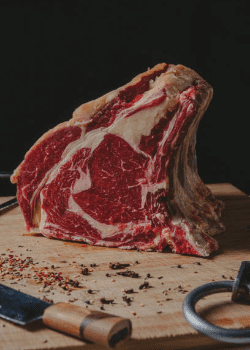
However – there are also several potential side effects and risks associated with it:
- Nutrient Deficiencies
- Gut Problems
- Heart Diseases
- Cancer
- Organ Damage
- Mental Health Issues
Again – you will need to avoid a lot of food groups rich in essential nutrients.
By doing that, your body will need to adjust to the diet (in the best case scenario).
However – it's not always the case.
So assuming that the diet is safe for everyone is completely false.
Also – if you're not careful, these adverse reactions can potentially lead to long-term complications.
You should definitely do your part by researching it before including it in your routine.
Overall – there are safer and more sustainable ways to improve your health other than this diet.
References:
1 – https://www.mcgill.ca/oss/article/health-nutrition/-carnivore-diet/
2 – https://www.diabetes.co.uk/diet/-carnivore-diet/
3 – https://www.thecarnivoredietcoach.com/-carnivore-foods/
4 – https://www.ncbi.nlm.nih.gov/pmc/articles/-PMC6209729/
5 – https://www.frontiersin.org/articles/10.3389/-fnut.2021.702802/
6 – https://www.ncbi.nlm.nih.gov/pmc/articles/-PMC3253466/
7 – https://www.ncbi.nlm.nih.gov/pmc/articles/-PMC2174488/
8 – https://pubmed.ncbi.nlm.nih.gov/-34934897/
9 – https://www.ncbi.nlm.nih.gov/books/-NBK537084/
10 – https://www.sciencedirect.com/topics/-low-carbohydrate-diet/
11 – https://www.thecarnivoredietcoach.com/-weight-loss/
12 – https://europepmc.org/article/med/-32833688
13 – https://www.ncbi.nlm.nih.gov/pmc/articles/-PMC9154285/
14 – https://www.heart.org/en/healthy-living/healthy-eating/-saturated-fats/
15 – https://www.allthingscarnivore.com/-fiber-on-the-carnivore-diet/
16 – https://www.ncbi.nlm.nih.gov/books/-NBK218764/
17 – https://www.betterhealth.vic.gov.au/health/-vitamins-and-minerals/
18 – https://www.ncbi.nlm.nih.gov/pmc/articles/-PMC7649274/
19 – https://www.hsph.harvard.edu/nutritionsource/-fish/
20 – https://www.ncbi.nlm.nih.gov/pmc/articles/-PMC6683260/
21 – https://www.ncbi.nlm.nih.gov/pmc/articles/-PMC4951875/
22 – https://www.hsph.harvard.edu/nutritionsource/-microbiome/
23 – https://www.ncbi.nlm.nih.gov/pmc/articles/-PMC8305009/
24 – https://www.ncbi.nlm.nih.gov/pmc/articles/-PMC4303825/
25 – https://www.hsph.harvard.edu/nutritionsource/carbohydrates/-fiber/
26 – https://www.health.harvard.edu/staying-healthy/-fats/
27 – https://www.ncbi.nlm.nih.gov/pmc/articles/-PMC9194089/
28 – https://www.ncbi.nlm.nih.gov/pmc/articles/-PMC6453579/
29 – https://www.health.harvard.edu/blog/-keto-flu/
30 – https://www.ncbi.nlm.nih.gov/pmc/articles/-PMC6478664/
31 – https://www.sciencedirect.com/topics/-prebiotic-agent/
32 – https://www.hli.ubc.ca/2023/03/-increased-risk-of-heart-disease/
33 – https://www.heart.org/en/healthy-living/healthy-eating/eat-smart/-fats/
34 – https://www.ncbi.nlm.nih.gov/pmc/articles/-PMC8030287/
35 – https://www.health.harvard.edu/staying-healthy/-tmao-and-your-heart/
36 – https://www.ahajournals.org/doi/pdf/10.1161/-STROKEAHA.112.679662/
37 – https://www.heartandstroke.ca/heart-disease/-types-of-heart-disease/
38 – https://www.heart.org/en/health-topics/cholesterol/-atherosclerosis/
39 – https://www.ncbi.nlm.nih.gov/pmc/articles/-PMC3078250/
40 – https://www.ncbi.nlm.nih.gov/pmc/articles/-PMC5831951/
41 – https://www.sciencedirect.com/topics/-heterocyclic-amine/
42 – https://www.cdc.gov/biomonitoring/-PAHs-FactSheet/
43 – https://www.ncbi.nlm.nih.gov/pmc/articles/-PMC6111235/
44 – https://www.ncbi.nlm.nih.gov/pmc/articles/-PMC2661797/
45 – https://www.genome.gov/genetics-glossary/-Carcinogen/
46 – https://www.sciencedirect.com/topics/pharmacology-toxicology/-carcinogen/
47 – https://www.who.int/news-room/questions-and-answers/-cancer-carcinogenicity/
48 – https://academic.oup.com/af/article/3/1/20/-4638623/
49 – https://www.britannica.com/science/human-nutrition/-Essential-nutrients/
50 – https://www.ncbi.nlm.nih.gov/pmc/articles/-PMC5962279/
51 – https://www.ncbi.nlm.nih.gov/pmc/articles/-PMC8073814/
52 – https://pubmed.ncbi.nlm.nih.gov/-33208922/
53 – https://www.hindawi.com/journals/omcl/2020/-8172714/
54 – https://www.kidney.org/content/-habits-that-may-harm-your-kidneys/
55 – https://www.ncbi.nlm.nih.gov/pmc/articles/-PMC2935477/
56 – https://www.ncbi.nlm.nih.gov/pmc/articles/-PMC4465200/
57 – https://www.ncbi.nlm.nih.gov/pmc/articles/-PMC5641835/
58 – https://www.ncbi.nlm.nih.gov/pmc/articles/-PMC2805706/
59 – https://nedc.com.au/eating-disorders/-disordered-eating-and-dieting/
60 – https://www.ncbi.nlm.nih.gov/pmc/articles/-PMC6370446/
61 – https://nedc.com.au/eating-disorders/eating-disorders/-body-image/
62 – https://www.psychiatry.org/patients-families/-signs-of-mental-illness/

